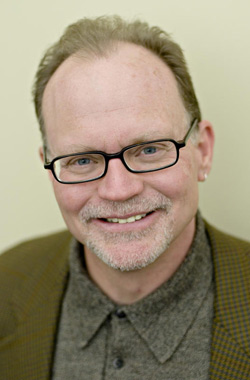The Hechinger Institute at Teachers College Enters Non-Profit News Sphere
An independently funded arm of Teachers College at Columbia University announced the creation of an innovative newsgathering effort called The Hechinger Report to provide in-depth coverage of national education issues on its own and in collaboration with other news organizations.
The new initiative is a program of the Hechinger Institute on Education and the Media, which is well known for seminars and fellowships for journalists featuring on-the-record discussions with the nation’s top researchers, policymakers and educators. The Institute’s entry into the expanding field of non-profit, non-partisan journalism is supported by $1 million in initial funding from Lumina Foundation for Education and the Bill & Melinda Gates Foundation.
The launch of the newsgathering effort comes as state education budgets shrink and federal spending grows, with the Obama administration using unprecedented sums of money to press for specific education reforms. President Obama also has vowed to provide the resources needed to increase college completion by 2020 so that the U.S. regains its standing as the best educated nation in the world. Meanwhile, the capacity of traditional newsrooms to explain, analyze, investigate and monitor the results of these policies in schools and classrooms has been diminished by layoffs and budget cuts.
“News organizations today just don’t have the resources to cover education or any other topic the way they once did,” said Richard Lee Colvin, director of the Institute and editor of The Hechinger Report. “Our job is to do all that we can to get beyond the surface news to explain what’s at stake in education, and to do it in a public-spirited, explanatory and investigative way.”
The mission of the Institute, which was created in 1996, is to inform the public about education through quality journalism. The Hechinger Report will collaborate with print, broadcast and online news organizations and also produce coverage on its own for broadcast and publication and for distribution on a new website to be launched next spring. Colvin is a former national education writer for the Los Angeles Times. The Report’s associate editor is Liz Willen, a longtime education reporter for Newsday and Bloomberg Markets magazine. They are joined by Barbara Kantrowitz, a longtime editor and reporter at Newsweek, who will serve as a contributing editor. In its initial phase, The Report will add a few staff journalists and rely on contributing editors, journalist-fellows and freelancers.
The first story produced by The Hechinger Report was a collaboration with Washington Monthly magazine. Editors at The Report worked with a veteran investigative reporter, Jon Marcus, on an article that chronicled the University of Maryland system’s efforts to deal with budget cuts and tuition increases. It is posted on Washington Monthly’s new online education website.
“The Monthly story represents the kind of journalism The Hechinger Report will produce,” said Jamie P. Merisotis, president and chief executive officer at Lumina Foundation. “It’s heavy on perspective, draws out key lessons, and is compellingly written. Stories like this help the public understand the critical nature of the crisis our higher education system currently faces.”
Supporting initiatives like The Hechinger Report is one way foundations are responding to the decline of traditional news media. News organizations such as Kaiser Health News, Yale Environment 360 and ProPublica, which specializes in investigative reporting, all have philanthropic support. Foundations also back local digital news efforts in cities such as San Diego, Minneapolis and Chicago, and statewide enterprises in Colorado, California and elsewhere. And universities, like the University of Southern California and the University of California at Berkeley, are also launching news operations.
LynNell Hancock, an associate professor at The Journalism School at Columbia University who specializes in education writing, said, “There has always been a hunger for deeply reported, compelling journalism on education in America, and there are few media outlets left that are willing to take the leap and invest in it. The Hechinger Report’s editors are combining new thinking on how to produce and distribute hard-hitting journalism with the historic need for smart stories that can change minds.”
Another project in which The Hechinger Report had a hand—an analysis of remedial math courses in community colleges—was reported by Beth Fertig and first aired on New York NPR affiliate WNYC in October. Fertig had a fellowship with the Institute to work on the piece and used information from the Community College Research Center at Teachers College in her reporting.
“My fellowship at the Hechinger Institute gave me so much useful information about the roles of community colleges at this critical juncture in education,” Fertig said. “I didn’t know how much of a national problem this is, or why. It was one of the best professional development sessions I’ve ever attended.”
The Hechinger Institute has grown over the past decade to become the preeminent source of training for reporters and editors on the education beat, providing seminars for over 1,000 journalists on all areas of education from early childhood through adult education. The Institute has published guides on covering teachers unions, teaching, early childhood education, and higher education finance that are used by reporters nationwide. The Institute’s latest publication is “Math Matters: A Journalist’s Guide.”
Published Tuesday, Oct. 27, 2009
